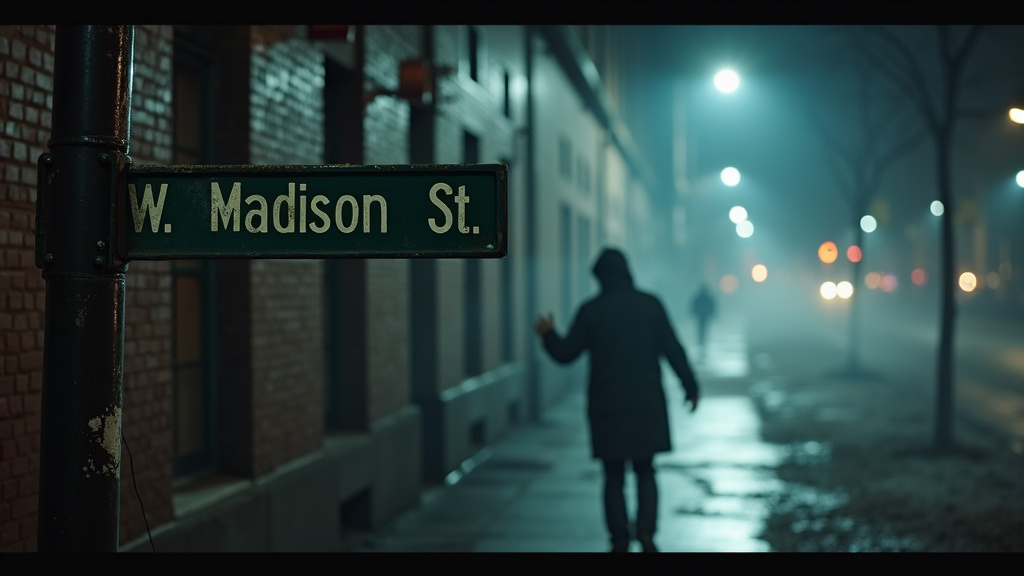CHICAGO – President Donald Trump has escalated his rhetoric, threatening to deploy National Guard troops or federal law enforcement to Chicago, characterizing the city as a “mess” and a “killing field” where residents are “screaming” for federal intervention. This aggressive stance, mirroring previous federal actions in Washington D.C. and Los Angeles, has met a swift and unified denunciation from Chicago’s state and city leadership. Officials argue that such a move is unconstitutional, unnecessary, and risks undermining significant progress in reducing violent crime.
In a series of statements and press conferences, Mayor Brandon Johnson and Illinois Governor JB Pritzker have squarely rejected Trump’s narrative. Mayor Johnson stated that his office had received no formal communication from the Trump administration regarding additional federal deployments, but voiced grave concerns about the “uncoordinated, uncalled for, and unsound” nature of the President’s approach. He warned that an “unlawful deployment” could “inflame tensions between residents and law enforcement” and “threaten to undermine the historic progress we have made.”
Governor Pritzker echoed these sentiments, accusing the President of “attempting to manufacture a crisis” and using the threat as a “test of the limits of his power and a trial run for a police state.” Both leaders emphasized that Illinois has not requested federal assistance and that there is no state emergency warranting such intervention. Pritzker vowed to “fight back” and take “all lawful measures to protect their residents against the president’s repeated attempts to intimidate us.”
Crime Statistics Contradict President’s Claims
Compounding the local opposition are recent crime statistics that sharply contradict the President’s portrayal of Chicago as a city in chaos. Data from the first half of 2025 indicates a significant downturn in violent crime. According to city figures, shootings have decreased by approximately 37%, homicides are down by 32%, and overall violent crime has seen a reduction of over 22% compared to the same period last year. These figures represent the steepest decline in over a decade for some metrics. Leaders point to these improvements as evidence that the city’s strategy, which includes investments in community violence interruption programs, mental health services, and education, is yielding positive results.
“The National Guard will not alleviate the housing crisis. It will not put food in the stomachs of the 1 in 4 children that go to bed hungry every night in Chicago,” Mayor Johnson stated, highlighting that federal military intervention is not a substitute for addressing the root causes of crime and the city’s social needs.
Community and Expert Skepticism
Beyond elected officials, community organizations and experts have also voiced apprehension. Leaders of groups like BUILD Chicago, which focuses on violence prevention in neighborhoods struggling with persistent crime, expressed concern that federal troops lacking local knowledge could disrupt ongoing progress. Experts have questioned the long-term efficacy of National Guard deployments in reducing crime, noting limitations in their law enforcement capacity and the potential for increased tensions.
Legal and Constitutional Hurdles
The potential deployment also faces significant legal and constitutional challenges. A retired Illinois National Guard general noted that under the Posse Comitatus Act, the President’s ability to use the National Guard for domestic law enforcement is restricted to specific circumstances, such as suppressing a rebellion or executing federal laws when regular forces are insufficient. Governor Pritzker has publicly stated he would challenge any unauthorized deployment in court, arguing it would be an “illegal abuse of power.”
Additionally, a federal judge recently blocked the Trump administration from cutting off federal funding to “sanctuary cities,” including Chicago, citing constitutional violations. This ruling underscores the legal battles already underway concerning the administration’s assertive federal posture.
The news of potential federal troop movements has ignited debate, with some Chicagoans expressing fear and frustration, while others remain defiant, asserting the city’s resilience and progress. This evolving news story highlights a direct clash between federal authority and local governance, set against a backdrop of complex crime dynamics and political tensions. The news continues to unfold as Chicago leaders prepare to resist any federal overreach.















